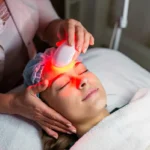Mens health encompasses a wide range of conditions that can affect physical and mental well-being. Recognizing the signs of potential health problems and understanding their underlying causes are fundamental steps toward maintaining long-term health. While many factors contribute to a person’s overall health, certain conditions are more prevalent among men.
What Symptoms Indicate Mens Health Issues?
Men can experience a variety of health symptoms that may indicate an underlying issue of low testosterone. One frequent concern is a noticeable decrease in energy or persistent fatigue. This goes beyond simple tiredness after a long day and can manifest as a constant state of exhaustion that interferes with daily activities. Another common symptom is a change in mood, such as increased sadness or a general lack of interest in activities that were once enjoyable.
Physical changes are also common indicators. Some men may notice a reduction in muscle mass and strength, even with regular exercise. Other physical signs might include hair loss, reduced bone density, or changes in sexual function, such as a decreased libido or erectile dysfunction.
What Causes Low Testosterone?
Testosterone is a hormone that plays a significant role in male development and health. Testosterone levels naturally decline with age, typically starting around age 30. This gradual decrease is a normal part of the aging process. Beyond age, other factors can contribute to lower-than-normal testosterone levels, a condition known as hypogonadism. Injury to the testicles can directly impact testosterone production. Certain medical conditions, such as metabolic disorders like obesity, are also linked to low testosterone. The relationship can be complex, as obesity can lower testosterone levels, and low testosterone levels can contribute to increased body fat.
How Is It Treated?
The treatment for symptoms associated with mens health issues, including low testosterone, depends on the underlying cause and the individual’s specific situation. A healthcare provider will first conduct a thorough evaluation, which may include a physical examination, a review of medical history, and blood tests to measure hormone levels. If low testosterone is diagnosed, and a specific cause is identified, treatment will often focus on addressing that primary condition. If obesity is a contributing factor, a plan focused on diet, exercise, and weight management may be recommended.
In cases where low testosterone is the primary issue and is causing significant symptoms, a doctor might discuss testosterone replacement therapy (TRT). This therapy aims to restore testosterone levels to a normal range. TRT is available in several forms, including skin gels, injections, patches, and pellets implanted under the skin. Each method has its own administration schedule and potential side effects. A medical professional will determine the most suitable option based on a patient’s health profile and preferences. The decision to begin TRT is made after a careful assessment of the potential benefits and risks.
Speak Further With a Doctor
Consulting with a physician or a specialist is the proper course of action for anyone experiencing persistent health concerns. A doctor can provide an accurate diagnosis and develop a personalized treatment plan tailored to your specific needs. Regular check-ups and proactive discussions about any changes in your well-being are foundational to managing your health effectively.





